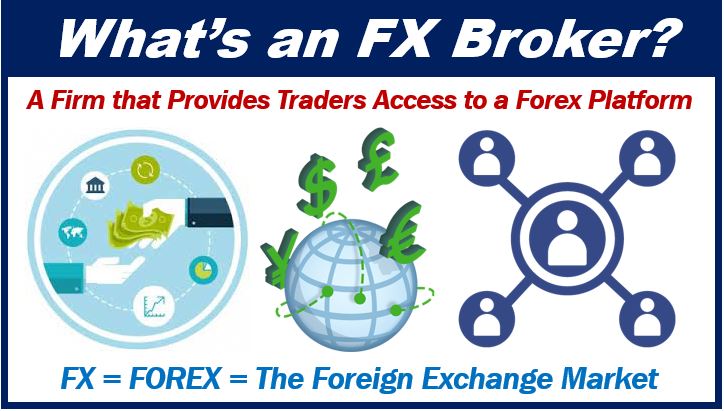Forex brokers come in many forms, from reputable brokerage companies to criminal operators. Forex traders, whether novices or professionals, should select their brokers carefully to guarantee they deal with a trusted company. Note that although most of these dealers generally have the same foreign exchange access and quality, their processes and rules nevertheless vary significantly.
Each broker in the business likewise symbolizes a distinct degree. There are some that have a high degree of knowledge and can reach the market directly. There are other brokers that are extremely remote and have minimal market connectivity. Finding out the many kinds of brokers is important to improve your chances of selecting someone who can help you become a successful forex trader. So what kinds of brokers are there on the FX market?

Dealing Desk
This broker is a market manufacturer. Distribution desk brokers or market makers typically provide set spreads. Most of them also operate by choosing to quote at certain times below or above the price of the real-time market. Working with a business desk is a smart choice for beginners and experienced traders who do not want to trade directly with suppliers of liquidity. Distribution desk brokers usually get paid through spreads.
Traders, according to Forex brokers reviews, are commonly calling market makers Dealing Desk forex brokers. The reason these brokers are termed market makers is that these brokers are your counterpart. Dealing Desk forex brokers with their traders will take the opposite order.
It’s not all terrible to deal with market makers if your account is modest. A retail desk Forex Broker, also known as a market manufacturer, is a broker who uses the other side of the customer’s transaction to establish the offer and ask the price and wait for a trader who wishes to make use of such terms and conditions.
Dealing office agents benefit from purchasing and selling at cheaper prices and from the gap between the bid and the demand price. In most instances, desk brokers maintain trading in their own liquidity pools securely and do not need external liquidity providers. While some think this kind of brokerage benefits the trader, many traders prefer the set spreads.
ECN Brokers
These brokers provide and show real-time order book information, which typically includes processed orders as well as the prices provided by various banks in the interbank market, on their websites. The majority of ECN brokers operate by providing information to all players in the forex market as a way of increasing market transparency and reducing trading costs.
In order to generate revenue from dealing with traders, they charge a fee on each traded volume. ECN brokers also enable traders to complete all of their transactions in the interbank market via the use of a single platform.
When it comes to the stock and currency markets, an ECN broker is a financial intermediary that utilizes electronic communications networks (ECNs) to provide customers with direct access to other players in the equities and foreign exchange markets. An ECN broker is able to give its customers narrower bid/ask spreads than they would otherwise be able to get because it consolidates price quotes from a number of different market players.
An ECN broker is only permitted to match transactions with other market players; it is not permitted to trade directly against the customer.
The usage of an electronic communication network (ECN) enables investors to trade outside of conventional trading hours, offering a method for individuals who are unable to participate actively in the market during normal trading hours or who prefer the flexibility provided by greater availability. It also avoids the larger spreads that are typical when dealing with a conventional broker, as well as providing overall cheaper charges and costs than dealing with a traditional broker.
STP Broker
STP brokers have the ability to transmit trade orders directly to their liquidity providers. Moreover, they do not interfere with transactions involving order execution. In addition, STP brokers that deal with a large number of liquidity providers may provide their traders a greater chance of achieving success in the forex market.
When attempting to earn a profit in the foreign exchange market, forex traders should make certain that they choose a broker that is capable of providing the services they need without participating in fraudulent activities.
Brokers that use STP (Straight Through Processing) are not required to maintain a trading desk. All orders placed via an STP broker/account are routed to the broker’s liquidity providers, who then execute the orders at the rates set by the liquidity providers.
STP brokers are brokers that specialize in single transaction processing (STP). The so-called DMA is one of the most significant advantages of using STP brokers. DMA is an abbreviation for Direct Market Access.
Orders from traders are sent directly to the liquidity pool, ensuring that orders are completed at the best available price, with just a tiny mark-up spread applied by the brokerage firm to the transaction. If you want to trade forex, you should always go for the broker with the most flexible spreads.
Interesting related article: “What is the Foreign Exchange Market?“

